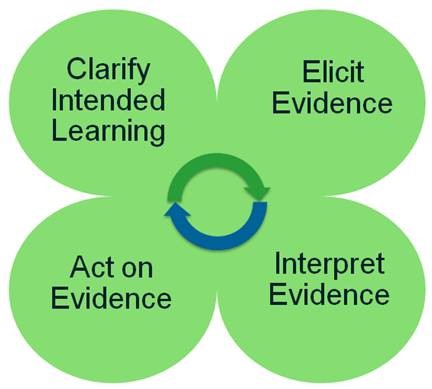Welcome to the Smarter Balanced Digital Library
By: Karen Eller, Teacher at Bancroft Elementary School in Wilmington and member of the Rodel Teacher Council
As teachers, instructional coaches, and even professional development trainers, we sometimes spend a lot of time searching and looking for the best resources available online to help support learning. This can be a daunting task at times. The Smarter Balanced Digital Library makes it easier for educators to find resources which were submitted and created by other educators.
Over the last two years, educators from the Smarter Balanced Consortium member states have been working in partnership building the Smarter Balanced Digital Library, a free online resource available to Delaware educators who are using the Smarter Balanced Assessment. The Digital Library is a grassroots project where educators have been heavily involved since its inception. There are currently over 500,000 users in the Digital Library.
I became involved with the Delaware State Network of Educators in 2013. Each member state has a State Network of Educators team of committed educators along with a leadership team from each state’s respective Department of Education. Currently, there are 34 members on Delaware’s State Network of Educators (SNE) team and over 1,500 SNE members across the United States. SNE members collaborate with each other to develop and clear thousands of resources for the Digital Library.
A Deeper Look into the Smarter Balanced Digital Library
The Digital Library is a completely free online resource available to Delaware educators in district and charter schools utilizing the Smarter Balanced Assessment system. It currently houses over 2,600 vetted instructional and professional learning resources aligned to the Common Core as well as the formative assessment process to improve instruction and advance student learning. Formative assessment is a deliberate process that provides actionable feedback to adjust ongoing learning and strategies used in the classroom. In addition to educator-contributed content, the library will contain interactive, multimedia modules built by experts which include the following:
- Subject- and grade-specific Exemplar Instructional Modules to model the formative assessment process
- Professional Learning Modules on Assessment Literacy to help educators deepen their understanding of the formative assessment process in daily instruction
The resources in the Digital Library are each housed on their own page with specific individualized information for educators. This includes information on how the resource is connected to the formative assessment process and how students can engage in the formative assessment process. Every resource supports educators and/or students in achieving one or more of the four attributes of the formative assessment process.
What Type of Resources Can You Find?
The resources in the Digital Library are comprised of three categories connected to one or more standard and to one of the four attributes of Formative Assessment. Categories include Assessment  Literacy Modules, Exemplar Instructional Modules, and Education Resources.
Literacy Modules, Exemplar Instructional Modules, and Education Resources.
The Digital Library contains more than 100 multimedia modules for English language arts/literacy, mathematics instruction, and assessment literacy. These modules are interactive experiences that may be used to:
- Demonstrate the formative assessment process
- Incorporate instructional tasks aligned to the
- Develop lessons aligned to the Common Core State Standards
- Learn how to use evidence from the Smarter Balanced summative and interim assessments and the formative assessment process to improve teaching and learning
- Support diverse groups of learners
The Assessment Literacy Modules highlight formative assessment practices and tools. They articulate the formative assessment process and frame formative assessment within a balanced assessment system. These resources are for educators, students, and families.
The Exemplar Instructional Modules can also be used for instructional coaching for educators. These modules are also helpful if you are trying to hone in on a particular strategy or concept. They focus on key content and practice from the Common Core State Standards. They also demonstrate and support effective implementation of the formative assessment process.
The third type of resources available are K-2 Instructional and Professional Learning Educational Resources. These are high-quality vetted instructional resources for educators along with additional resources for students and families.
Opportunities for Collaboration
The Digital Library provides a unique opportunity for educators to collaborate and connect with other educators across the country to improve their practice. Teachers continue to be the driving force behind the Digital Library and its enhancements.
The Digital Library includes innovative collaboration features that promote collegial conversations across the country. These features include:
- Encouraging educators to rate resources
- Promoting how the resources may be used
- Providing online forums for educators to share their expertise and pose questions
How to Gain Access to the Digital Library?
Any teacher working in a district or charter school using the Smarter Balanced Assessment has access to the Digital Library. Sign on information initially came through district mail. Speak with your technology coordinator if you need to obtain your sign on information or you can access through your IMS Log In by clicking the DeSSA/DCAS icon.
Access the Digital Library here: https://www.smarterbalancedlibrary.org/.
